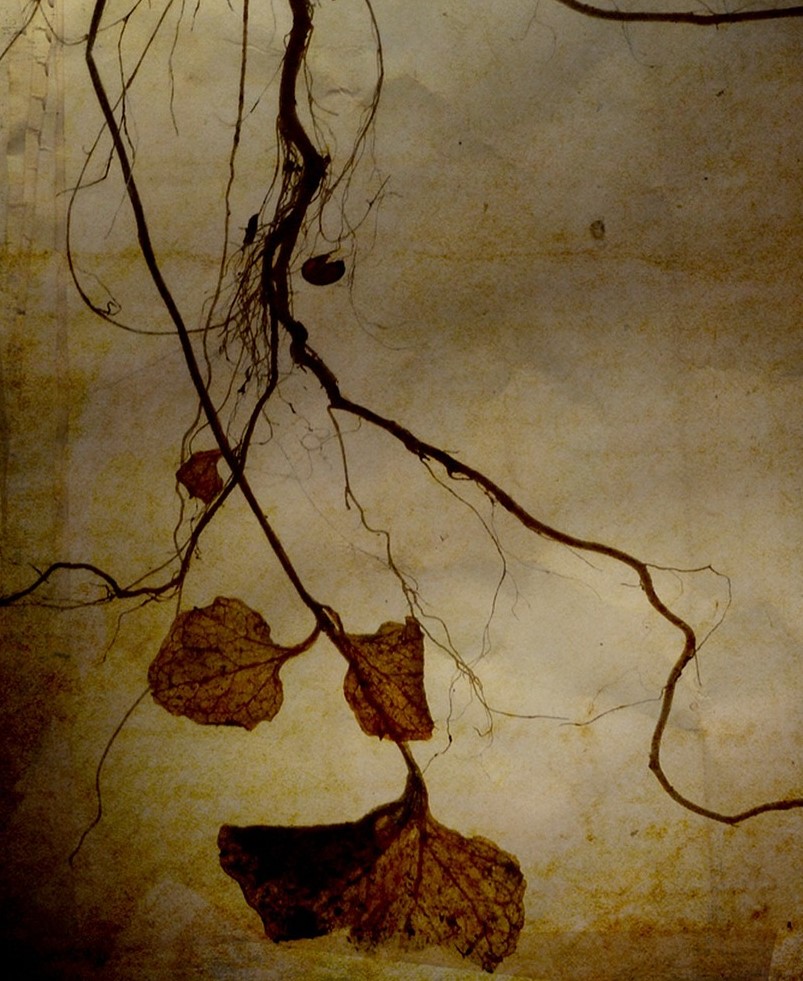Self-translated from the Éʋé by Kokouvi Dzifa Galley

Image used for representation.
Traditions
The human being, like a flower, is the perfume of the universe
His origins are the sap that irrigates his roots
The human being must not ignore these roots
That he falls from the sky
That he climbs to the sky
Whether his road passes here or there
The human being must have as memory his roots
Like the sun its curve in the sky
The human being is a pearl of the universe
He must know the rites linked to his land
The rites are plural
According to the origin
According to the history
According to the experience
The roads of the human being are infinite
Each one must preserve his own
And respect that of others
No one should distort or monopolize that of others
The human being has as a name his particularities
He becomes other if he forsakes this singularity
The one who turns his back on his origins
Becomes a door open to all winds
His home is conquered the elsewhere
The nature having horror of the vacuum
He becomes an easy prey
The spoils of a war lost in advance
Each clan has its own custom, its own way of reading
To communicate with the world
He who abdicates is lost
Don’t allow that
The roots of your ancestors fade away
In the immensity of the world
Where sensitivities are plural and multiform
According to the intrinsic realities of each people
Remain a sentinel to watch over your roots
Mark this origin through the name traditions from which you baptize
The fruit of your womb
The seed that will fertilize the earth after you.
Rites And Customs
The neck is a sensitive cord of the body
Thus are the rites and customs useful traces of a people
Each one will have to carry this lamp and watch over his world
To preserve the vitality of his renewal of the world
Let us preserve this creativity
Let us raise it like a candle
That will keep its lights on the dreamed world
Let it be a flame that burns and sizzles
From the depths of our being
Rites and customs are infinite riches
Visible plural particularities of ancestral traces
Let us transform or renounce the rites and customs
That does not respect life
That does not have as a foundation
The cardinal place of the human being
Of nature
His physical integrity
The ancestors do not ignore that the man is a precious element
His life is the backbone of the world
Its very root
The good customs and habits are its ferment
The pilgrim’s cane the shadow of his lasting dreams projected on the world
Uses and customs must go through time
Inscribed on the pages to become forever memory
The break with its native language
An obstacle to the good practice of habits and customs
How to keep alive a language that is no longer shared?
The written word becomes an essential tool
The soul of the graphics prompts to weld the man to his memory
The initiator as well as the master of the rituals are obliged to it
The absence of writing continues a chasm
A crack in the ramparts of memory
A wound that soaks sooner or later
The memory in the ink of the oblivion
The orality is a fragile cane in the hands of the initiate
And of the master of rituals
Every day thousands of words fly away and become nothingness
In Africa, every time a middle-aged man crosses the river
A whole oral library dissolves into sand.
AKƆSIWA[1]
Akɔsiwa
let’s go in the rain to climb high and distant mountains
so that the seeds of hope sown
in the flesh of your land
let’s go
let us become joy melted in one season
let’s become a tree with thousand-year-old roots
a tree with infinite shades
like the flowing tide that prepares the earth
so that the sown seed may germinate
Akɔsiwa
come
and invest my home with a heart of joy
Akɔsiwa
your shining name is gold
sublime beauty
infinite charm lost in the immensity
the perfumes of your breasts under your dress
resound and spread your splendor
have the brightness of a golden necklace
keep the scent of high mountain flowers
move with delicate graces like the irresistible
flowers of the Agou mountains
move with sublimation
so the waters of the waterfall of the Atakora Mountains
they resound your breasts
like the feverish steps of the dancers of Gadzo
and my heart drum weeps with happiness
the eyes closed
a myriad of stars shine in the sky
above me
but the brightness of your being alone floods me
drowns me with light
your halos are scents
you are the luminous river that carries me away
only your voice of emotion drowns me in a torrent of joy
luminous pearl
infinite luminescence
come to possess me with trance and intoxication
of madness and unbridled joy
let us become one layer
let us become the song-bird
in your fresh and downy orchard
to walk alone on the roads of life is a torment
solitude sadness misery
listen to the impulse of my heart
carry my way in you
and I become your shadow
I come to you
bring your wishes closer to mine
we will walk night and day
I am only joy
my heart is a drum of intoxication
you are the fresh wind that floods me
I am a full wineskin
with each of your laughter that walks toward me
your breath is the essence of life
no storm can unravel us
to see you
surrounds me with a free land
a paradise the infinite home of freedom
where opulence is a grail of your graces.
FETOME[2]
Seconds turn into minutes
minutes turn into hours
the hours become day
the days form a week
the weeks knock on the door of the month
the months make up thirteen times a year
the years unroll the infinite
the infinite gives the hand to the mysterious
the unfathomable mystery
the place of the origins
FETOME
Nothing
the corn becomes gold
our pockets hollowed out with the wind
the measuring bowl clutches the mine
yet no parent can bear to see
the night and its children count the slats of no roof
the corn becomes gold
the days are braided with worries
humanity is bogged down in misery
hunger digs in us a disastrous abyss
our pockets hollowed out with the wind
the penniless swarm in the sun
more lost than a church mouse
the corn becomes gold
the human being is only the shadow of his dreams
and the hearts are sown with gnashing of teeth
the corn becomes gold
the corn breaks the human’s Achilles tendon
the corn gives him palpitations
it defies the multitude
and becomes the proverbial unsung
our pockets dug of wind
lose the movement of the word
the corn becomes gold
more precious than the breath
the extinguished homes are braided with worries
hunger crisscrosses the alleys in the belly of the needy
the corn smiles in the corner of the lips
it splits into teasing
whistles with a hen’s ass mouth
invective
resounds with thunder
without compassion
drawn to a thousand pins the dandy crumples the peasant without care
the Nefidegba[3] measure loses its Latin
the corn is close to the gold
and Lomegban[4] doesn’t mind
the bids resound
the price of maize soars
Doyiyo[5] is far from the multitude
Aguwe[6] does not rush into company
Kpogbavi[7] does not lend itself to any game
Kofigo[8] beats all the records
Blidogba-ablodegbadja[9] has a nivaquine mine
auctions are going through the roof
corn is as close as gold
in front of the empty pockets
the corn is close to the gold
who and who will be able to make pearls of it
to make themselves beautiful and walk the streets of the city
when this corn toises and treads the gold.
My Mother
The voice of my mother
Delight of a ripe mango
In my memory
***
The sap of a mother
An immaculate love
Like a lullaby
Spilling from a sinking sleep
And leaves only a little one to blossom
A blooming face.
***
Every night
She leaves her body
Draped in a white percale
Shooting star
Engulfed in the intimate
Of a mystical world.
Notes:
[1] Akɔsiwa is a Ewe name, a language spoken in southern Ghana, Togo, and Benin. It is the name given to a girl born on a Sunday. In this cultural area, whether you are born a boy or a girl, each day of the week has a specific name. A boy born on a Sunday is called Kossi, Kɔsi, or kwasi.
[2] Fetome, in the Ewe cosmogony, is the place of origin.
[3],[4],[5],[6],[7],[8],[9] These are all names of bowls that serve as a unit of measure for corn, millet, and peanuts in the market.
About the language:
Éʋé, or Ewe, is a Niger-Congolese language. It belongs to the Kwa language group and is spoken in West Africa, in the Volta region of southeastern Ghana, formerly British Togoland (population 4,685,760), in southern Togo, formerly French Togoland (population 3,000,000), and in southwestern Benin (population 1,700,000). Ewe is also spoken in the diaspora. It is part of the linguistic continuum of Gbe languages spoken in these three countries and in Nigeria.
Also, read a bunch of Bengali microfiction by Abhijit Bera, translated into English by Bishnupriya Chowdhuri, and published in The Antonym:
Follow The Antonym’s Facebook page and Instagram account for more content and exciting updates.


























0 Comments